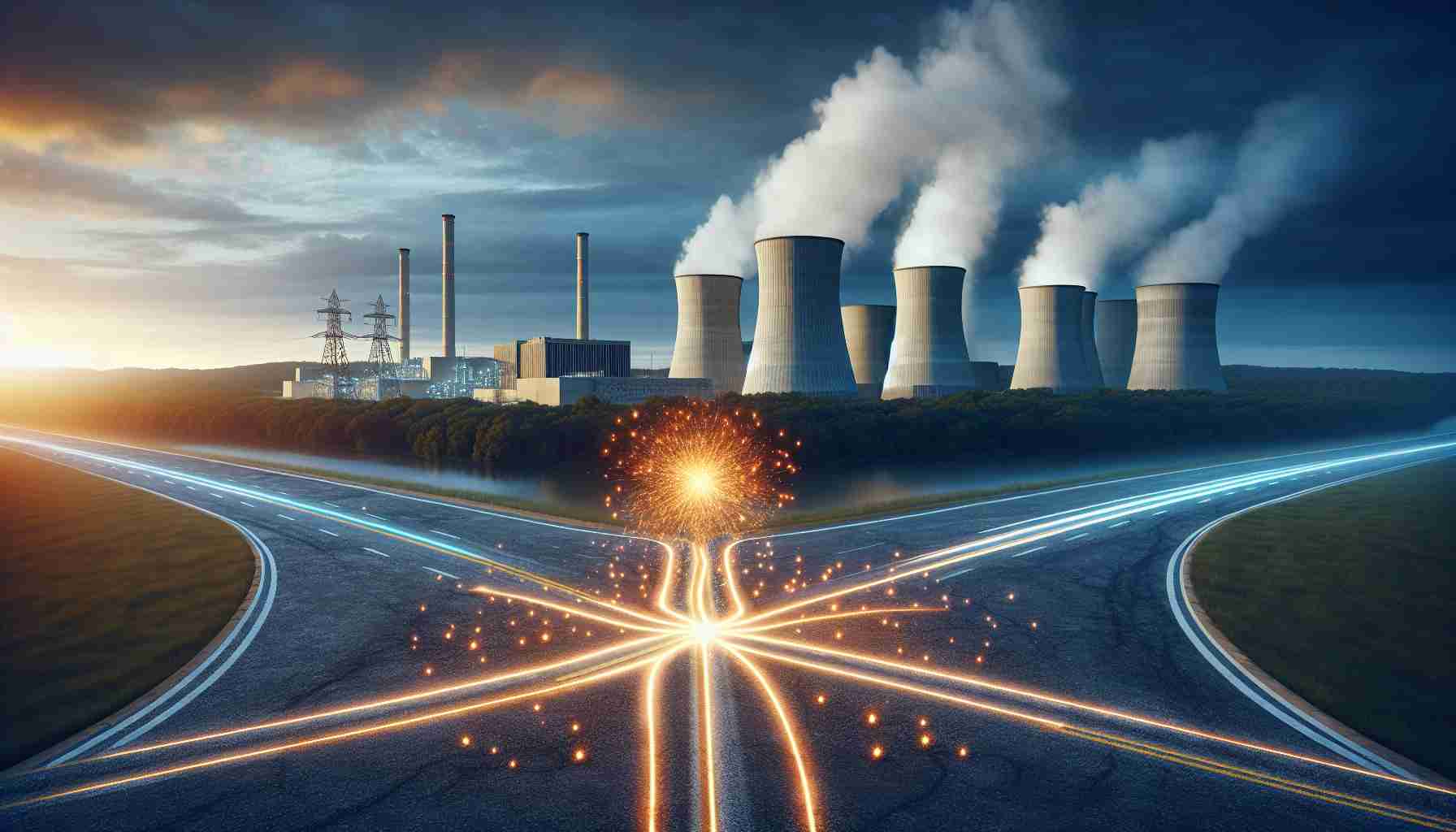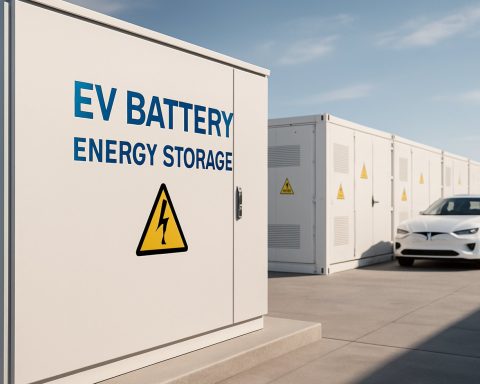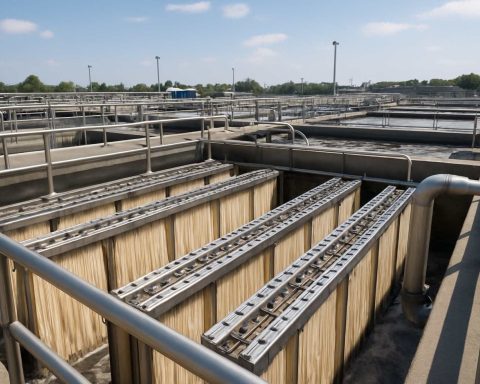Missouri is reevaluating its nuclear energy capacity with the return of crucial legislation aimed at easing the construction of new reactors. Sponsored by Representatives John Black and Willard Haley, the Missouri Nuclear Clean Power Act seeks to alleviate financial constraints faced by electrical corporations in expanding nuclear power.
Currently, utility companies in Missouri cannot incorporate construction costs for new plants into their rate structures, hindering financial support for infrastructure projects. This new legislation permits cost recovery for nuclear plants generating up to 600 megawatts, potentially providing a vital boost to energy supply amidst growing electrical demands driven by modern appliances and electric vehicles.
The act has been introduced as House Bills 376 and 50, which are pending assignment to a committee after their initial reading in January. The development is crucial as Missouri’s existing electrical infrastructure struggles to keep pace with increasing energy needs. Past efforts to promote small modular reactors faced obstacles, including unsuccessful bids for federal funding.
Supporters argue that these smaller reactors offer a reliable alternative to other renewable sources, which can be less dependable and require more time to establish. With only one operating commercial nuclear reactor in the state, Missouri may miss out on economic opportunities without a renewed commitment to nuclear energy expansion. In a rapidly changing energy landscape, the state must confront its options for a sustainable and secure energy future.
Reevaluating Nuclear Energy: A Path Towards Sustainable Progress
The emergence of the Missouri Nuclear Clean Power Act not only represents a significant shift in the state’s energy policy but also underscores the larger implications for society, culture, and the global economy. By prioritizing nuclear expansion, Missouri may set a precedent that could influence energy strategies across the nation, particularly as states grapple with the urgent need for clean energy solutions amid climate change pressures.
As the demand for electricity surges—driven by burgeoning technologies such as electric vehicles and smart appliances—the need for consistent energy sources becomes paramount. Nuclear power, with its low carbon emissions, offers a compelling answer to this growing crisis, potentially reshaping societal attitudes towards energy consumption. Furthermore, Missouri’s actions could encourage other states to reconsider their own nuclear energy positions, facilitating a national dialogue on the resilience and sustainability of nuclear as a major energy contributor.
Yet, the environmental implications cannot be disregarded. Although nuclear energy generates minimal greenhouse gas emissions during operation, issues surrounding waste management and the lifecycle of reactor construction must be addressed thoroughly. The potential environmental effects hinge on how effectively the state balances expansion with sustainability, ensuring that nuclear energy becomes part of a broader clean energy strategy rather than a standalone solution.
Looking ahead, the trend towards embracing nuclear energy may accelerate, influenced by technological innovations that make reactors safer and more efficient. As Missouri navigates this evolution, its decisions will likely resonate beyond state lines, shaping future energy policies and encouraging investment in nuclear technologies as a vital component of a sustainable energy future. Ultimately, the outcome of this legislative push could redefine Missouri’s energy landscape, impacting economic growth and environmental stewardship for generations to come.
Missouri’s Nuclear Energy Renaissance: A Game Changer for the Future?
Reassessing Nuclear Energy in Missouri
Missouri is on the cusp of a pivotal shift in its energy landscape as lawmakers introduce the Missouri Nuclear Clean Power Act. This legislation, backed by Representatives John Black and Willard Haley, aims to ease the financial challenges associated with constructing new nuclear reactors in the state. As electricity demands continue to rise, the proposal seeks to position Missouri for a more robust and resilient energy future.
Key Features of the Missouri Nuclear Clean Power Act
1. Cost Recovery for Utilities: One of the most significant changes this act introduces is allowing utility companies to recover construction costs for new nuclear plants generating up to 600 megawatts. This could alleviate financial pressure on electrical corporations and encourage investment in nuclear infrastructure.
2. Supporting Small Modular Reactors (SMRs): The act may also pave the way for the development of small modular reactors. These innovative reactors are deemed by proponents to offer a reliable energy source with potentially lower initial costs and faster deployment times compared to traditional nuclear plants.
3. Legislative Journey: Currently filed as House Bills 376 and 50, these proposals are positioned to make strides in the legislature after their initial reading in January. Their progress is crucial as Missouri’s existing electrical infrastructure struggles to meet growing consumer demands.
Pros and Cons of Expanding Nuclear Energy
Pros:
– Enhanced Energy Security: Expanding nuclear capability can help Missouri meet rising energy demands while reducing reliance on fossil fuels.
– Economic Opportunities: Investing in new nuclear projects can create jobs and promote local economies through construction and operational phases.
– Lower Greenhouse Gas Emissions: Nuclear power is considered a low-carbon source of energy, contributing to state and national climate goals.
Cons:
– Public Perception and Safety Concerns: The history of nuclear accidents can create public skepticism about the safety of new plants.
– High Initial Costs: While the legislation allows cost recovery, the initial financial outlay for constructing nuclear facilities can be substantial and poses risks for utility companies.
– Long Project Timelines: Developing nuclear power plants can take significant time, potentially delaying benefits during a time of urgent energy needs.
The State of Nuclear Energy in Missouri
Currently, Missouri operates just one commercial nuclear reactor, which limits the state’s ability to capitalize on nuclear energy’s benefits. With the rising prevalence of electric vehicles and energy-intensive appliances, Missouri’s energy demands are expected to soar. However, the state must navigate regulatory and financial hurdles to realize the full potential of nuclear energy.
Trends and Insights
As other states look to bolster their energy grids and respond to climate change, the trend towards expanding nuclear power presents Missouri with an opportunity to innovate and lead. With the potential to integrate newer technologies like small modular reactors, Missouri could emerge as a model for modern nuclear energy deployment.
Market Analysis and Future Predictions
The evolution of nuclear energy in Missouri could significantly impact the local energy market, especially if the legislation is successfully implemented. As we look towards the future, experts predict that states investing in nuclear infrastructure may experience more stable energy prices and improved grid reliability.
In conclusion, with the Missouri Nuclear Clean Power Act, the state stands at a crossroads that could redefine its energy capabilities and economic landscape. By embracing nuclear energy expansion, Missouri may not only address its current energy needs but also contribute to a sustainable future.
For more information on energy developments, visit energy.gov.











